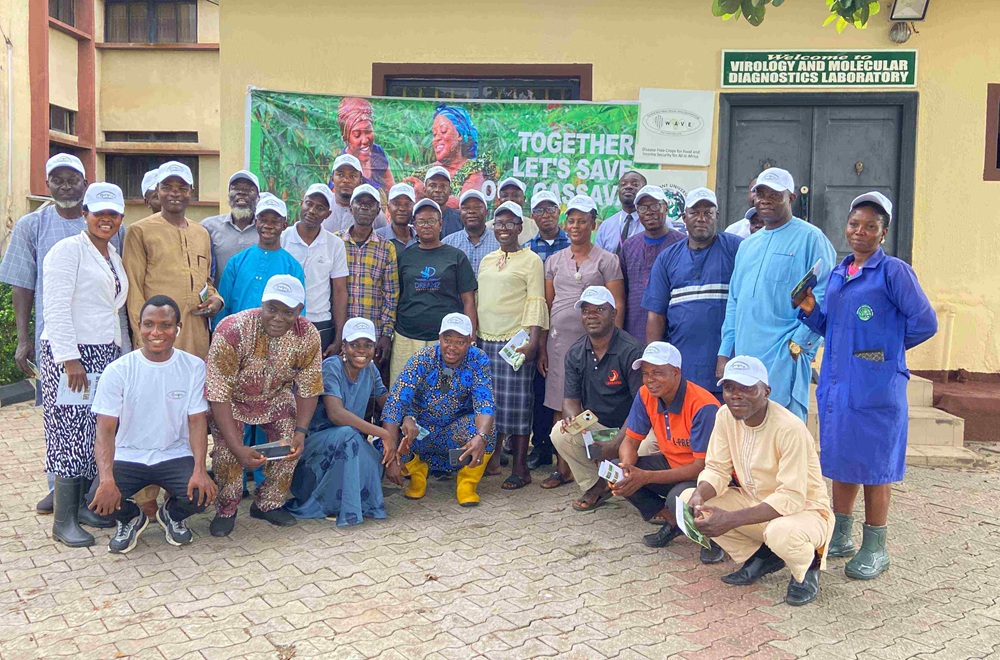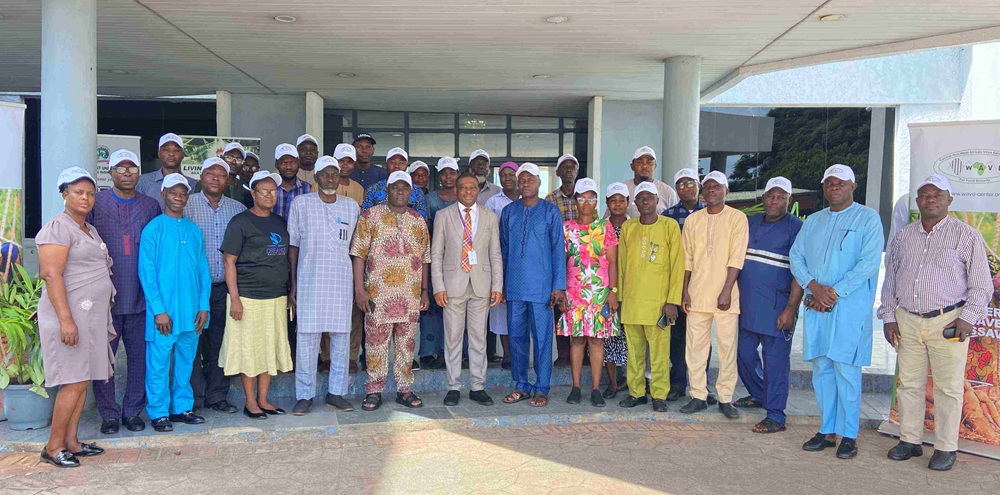As part of the Central and West African Virus Epidemiology (WAVE) Program’s commitment to ensuring sustainable solutions for boosting agricultural productivity in Africa, the Covenant University hub of the WAVE Program organized a one-day train-the-trainer workshop on continuous nationwide monitoring of cassava viral diseases.
This training was necessitated by the need to develop local capacity for data collection as well as the development of a plant health database. This initiative is aimed at improving the management of economically important plant diseases such as Cassava mosaic disease (CMD) while also working to ensure the exclusion of the highly virulent Cassava brown streak disease (CBSD).
The training which held on June 19, 2025, at the Covenant University Guest House, brought together 30 agricultural extension officers, with five representatives from each Agricultural Development Program (ADP) across the six Southwestern States of Nigeria. The training was declared open by the Vice-Chancellor of Covenant University, Professor Timothy A. Anake, who in his remarks, highlighted the importance of cassava to ensuring food security in Nigeria, stating that the training was timely given the prevalence of Cassava Mosaic Disease in Nigeria and the threat of Cassava Brown Streak Disease. He urged the participants to pay rapt attention and make the best of the knowledge they would receive. He closed by welcoming the participants to Covenant University and thanking them for their commitment to ensuring food security in Nigeria.
The training was facilitated by WAVE-CU team members, who guided the participants through protocols for conducting field surveys on ‘Cassava Viral Diseases’ using the ‘kobocollect’ application. Specifically, the training covered how to recognize symptoms of ‘Cassava Mosaic Disease’ and Cassava Brown Streak Disease,’ emphasizing data collection as well as sample collection and storage. The training also included a practical session at the WAVE-CU demonstration plot, where participants put the knowledge they had received to practice. Each participant simulated what it would be like to conduct the survey in their respective states.
The training closed with remarks from participants across the six states, with the participants committing to routinely conduct surveys of cassava fields as well as ensuring to step down the training to other members of the ADP in their respective states.


